By Astrid Countee
“Only Forward,” that is the message of Netflix’s latest superhero show, Luke Cage. A message that seems to have shown up just in time for the turmoil that we find our country in.
2016 was a hell of a year. In America, politics dominated the news cycle, police shootings kept many people on edge, and continued discrimination against women and the LBGTIA community made many of us question if it was 2016 or 1916. The fact that the top 10 highest grossing films of the year are all superhero stories, fantasy or animated points to the fact that many Americans were likely looking for an escape from the harshness of their everyday lives. In short, it feels as though Americans need their own superhero. Netflix’s Luke Cage delivered a hero who was socially relevant and cultural significant in ways that we have not seen before.
But Luke Cage is not new. Luke Cage, a.k.a Carl Lucas a.k.a. Power Man, is an ex-convict turned superhero who first rose to prominence during the blaxploitation era of the 1970’s. During this time, films introduced black heroes often placed in poor urban neighborhoods. These characters were sometimes depicted as exaggerations of black stereotypes and the films focused on issues of anti-establishmentarianism, racism and vengeance. The character of Luke Cage was introduced by Marvel Comics in 1972, a time when black heroes like Shaft and Super Fly were gaining popularity. Cage’s world is set in the center of black cultural achievement, New York City’s Harlem neighborhood, where he is born and raised as Carl Lucas. Carl and his friend Willis Stryker grow up the neighborhood together and end up getting involved in petty crimes. When Carl realizes that he is hurting his family, he seeks to straighten up, but his friend Stryker gets drawn deeper into the criminal world.
It is through the betrayal of Stryker that Carl gets sent off to prison for a crime he didn’t commit. While incarcerated, Carl is subjected to racist correctional officers and, eventually, illegal experimentation that allows him to develop his super power and impenetrable skin. When Carl escapes Seagate, the prison that he is sent to, he renames himself Luke Cage.
It is with this new alias that Luke eventually becomes a Hero for Hire.
Superheroes are a part of our modern day mythology. We look to these stories of valor, honor, and vengeance to galvanize our own beliefs in the ability of good to triumph over evil, for those who are weaker to defeat the strong, and, most importantly, to see our own human frailty reflected in the process. So when it was announced that Netflix would be creating a separate show for Luke Cage, a character first introduced in the Netflix series Jessica Jones, there was a strong positive response from the black community in the US.
Besides the political and social commentary, Luke Cage tells a story of two brothers on different sides of the same fight. In many ways, this is a very American, Civil War-style approach, pitting brother against brother. It is also a story rooted in the Biblical origins of the character. Luke’s superhero story most closely resembles a version of Samson and Delilah. Samson was an Israelite who was given immense strength by God. He was able to do impossible things such as ripping a lion apart. Due to this blessing, he was feared by his enemies who longed to find out his weakness. Like Samson, Luke is super strong and a threat to the status quo. He can’t be stopped by police or even by kingpins in Harlem’s underworld.
But, also like Samson, Luke has one weakness, which is exploited by the woman that he loves, Reva. When Samson travels to Gaza, the Philistines convince Delilah to seduce Samson to find out his weakness. She tries several times to tease out what it is that makes him so strong. Finally, Samson tells her that it is his hair, which has never been cut, that is the source of his super strength. Luke finds that it is Reva who, similar to Delilah, was tasked to use her influence to break down Carl Lucas while in prison. Luke discovers that Reva was used to recruit him to be a test subject in a botched experiment that eventually gives him his super powers. Upon learning the truth, Luke spirals into destructive despair. Overcome with grief, Luke destroys the computer where he watched videos of Reva detailing her notes on him, and ultimately revealing her part in his medical experimentation.
Luke Cage’s Biblical origins are more deeply reflected in the relationship with his nemesis and brother, Willis Stryker A.K.A. Diamondback. In episode 10, Luke and Claire, a nurse from Hell’s Kitchen who has a propensity for helping superheroes, end up at his family’s church, where Luke realizes the truth about Stryker’s parentage. The two grew up as childhood friends never knowing they were related, although they were bonded by the sins of their father. Like Cain was with his brother Abel, Willis grew to resent his younger brother Carl. Willis knew from an early age that he was an illegitimate child due to an affair between the Pastor and his mother, the pastor’s secretary. Pastor Lucas and his wife had tried, but were unable to conceive a child. It was during this time that Luke’s father had an affair that eventually led to the birth of Willis Stryker. Like the story of Issac and Ishmael, once Carl (Luke) was born, however, Pastor Lucas showered him with attention and praise, and did not acknowledge Willis as his son.
As the arms dealer Diamondback, Willis Stryker exacts his revenge on the heartbreak he experienced growing up, and his jealously over the love of their father. The only thing he possesses that belonged to Pastor Lucas is a Bible he is seen reading and quoting from several times in the series. Upon realizing the truth of their relationship, Luke tells Claire that, “I am my brother’s keeper whether I like it or not.” This moment is a turning point in Luke’s pursuit of Diamondback. The realization of their connection makes Luke sympathetic to the hatred that Diamondback displays towards Luke. With these words, Luke is acknowledging Stryker as his brother, something that their father never allowed them to do by keeping their relationship a secret.
Indeed, even Luke’s chosen name relates to the Bible. In episode 4, the story dwells upon Luke’s days at Seagate, where you learn about his past and come to find out how Luke chose his new name. Luke, for a passage that his preacher father quoted to him often, Luke 4:18:
The Spirit of the Lord is on me,
because he has anointed me
to proclaim good news to the poor.
He has sent me to proclaim freedom for the prisoners
and recovery of sight for the blind,
to set the oppressed free,
Cage comes from a quote that he tells to Reva “No one can cage a man if he really wants to be free.”
While many people grew up watching superheroes, the vast majority of American superheroes from comics are white, a perspective that necessarily colors stories of bravery and strength. When you seek the lens of a different kind of American, you introduce a new narrative about what it means to be a hero in our culture. In this case, having a black superhero is not just about beating the bad guys—it is also about uplifting and upholding the truths of black culture and black history in America. Not only does this superheroes save the day, he is also tasked with unveiling hidden truths that cast a dark shadow on a group of Americans that are often left out of the narrative of valor, sacrifice and bravery. In this case, those eyes are squarely set on Harlem and all that it represents in American culture.
In Netflix’s version of retelling Luke Cage, show runner and producer Cheo Hadari Coker wastes no time in getting to salient topics. In episode 1, we meet Luke, where his position as a custodian and glorified bar-back is both praised and ridiculed by other characters. When making reference to the death of a character and the subsequent disappearance of Chico, Luke states, “Everyone has a gun, no one has a father.” Luke’s comment rings of the dissonance that exists in a neighborhood that has established so much excellence, but is currently overrun by street violence and denigrated family life. Harlem is the site of the Harlem Renaissance, a period during the 1920’s and 30’s that bore witness to great black artistic achievement in American history. Several times in the series you can catch Luke reading a copy of Invisible Man, a novel inspired by the Harlem Renaissance that addresses the social and intellectual challenges of African American men.
By several measures, Luke Cage is by far the “blackest” thing that Marvel has ever done. The series is teaming with references to black historical figures, like Marcus Garvy, Jackie Robinson, and Crispus Attucks. Music, especially soul and hip-hop, provide a heavy influence on the tone and message of the show. Each episode is named after Gang Starr songs. Black social and political thought are frequently referenced and commented on. There is candid conversation about institutionalized racism and the harassment of the black and brown people in Harlem by the police. During a meeting with Mariah Dillard, a Harlem political figure and cousin to CottonMouth, when Diamondback negotiates the sale of his “Judas” bullets, he reminds her that, “Black fear after abolition is how gun laws got enacted in the first place.” This quote relates back to the implementation of black codes after the Civil War. Black codes were laws that restricted the freedom of blacks and forced them into a slave labor market. It also instituted gun control laws which were designed to criminalize any black person owning and using a weapon.
Luke walks the streets in a dark hoodie, where he is sometimes stopped and harassed by the police. During a time when shootings of young black men have become a constant in our social media feeds and nightly news, there is “something powerful about seeing a black man that is bulletproof and unafraid,” as said by Method Man in the series. But simply being bullet proof doesn’t solve the problems that Luke and the residents of Harlem face. The issues that arise throughout the show are complex and layered, often creating conditions for which there are no easy answers.
Luke Cage doesn’t tout itself solely as racial commentary. Rather, the crux of the show deals with how to do the right thing in a world where doing bad is a way of life. More than once, Luke notes that he is “no hero.” He doesn’t want to be different from anyone else, and doesn’t want to feel responsible for saving Harlem from those who would destroy it. Detective Misty Knight is a complex character in her own right. She has her own battles “… with the tough task of being a police officer of color in a no-snitch culture that doesn’t trust law enforcement.” Even congresswoman Mariah Dillard walks the line, obviously dabbling in Harlem’s dark side while publicly remaining a voice for people that are often overlooked.
But there remains hope in our ability to help each other. Luke’s struggle to keep moving forward while being pulled backwards into the criminal world reflects the tension of the show. Harlem life is depicted as a battle between great historic political and artistic achievements and the current triumvirate of drugs, corruption and questionable policing that are pervasive in the neighborhood. The series asks viewers to look at the criminal justice system, systems of power, racism, family and secrets, the relationship between the police and the communities they serve, and the African American history that often gets overlooked.
To have this message portrayed through the eyes of black and brown characters “de-centers whiteness and places a black man and black culture at its core forces those watching to see the humanity in those who inhabit black bodies.” Coker wanted to ensure that Luke was not just a black hero in a black hoodie, but that Luke became “one of handful of television characters who provide an alternate vision of black America.” And while Luke Cage takes on a decidedly ethnocentric perspective by telling this story through the residents of the neighborhood , the show “uses its expert storytelling and comic-book mold to remain inclusive all prospective audience members, no matter their skin tone.”
The show also offers a way to move forward. “[Our Legacy], It’s here….its all around you if you respect yourself enough to take a look,” Luke says to a young boy in the park. Great Americans like Crispus Attucks, Jackie Robinson, Walter Mosley and others are named dropped throughout the series as a reminder that there is something larger at stake and something greater to protect. The best advice may have been saved for when Luke finally wins a fight with a deadly adversary.
“How did you do that?”, asks Claire. “The more I hit him, the more he dished out,” says Luke, “So I stopped feeding him hate.”
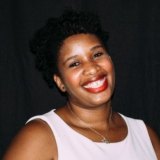
Astrid is a digital strategist, software engineer and data analyst. She started out with plans to be a doctor, but switched majors and received her BA in Psychology from Baylor University. Realizing that she wanted to be in the field more than in the lab, she pursued a MA in Anthropology from University of Houston, where she focused on medical anthropology and chronic disease. Since then, Astrid has developed a strong interest in technology, analysis and social identity. Her curiosity led her to attend The Iron Yard Academy and learn to become a software developer. Now she enjoys mixing and matching her anthropological training with her tech skills to create products and experiences that resonate with others.She is the Director for Tech For Justice an initiative to use technology to help people gain access to justice. She is an organizer for Rails Girls, a workshop that teaches girls and women how to code. Astrid is currently attending University of Houston-Victoria pursuing a masters in computer science and math. When she is not studying or working, she enjoys writing at her blog ianthro.com. She also loves to hang out on twitter, and LinkedIn.
Works Cited
Featured Image was found here.
2016 in Film, 2017 January 23. In Wikipedia, The Free Encyclopedia. Retrieved 14:00 January 23 2017, from https://en.wikipedia.org/wiki/2016_in_film
Ali, Lorraine. (2016). “ Commentary ‘Luke Cage’s’ true superpower is showing an alternate vision of black America.” LA Times.http://www.latimes.com/entertainment/tv/la-et-st-why-luke-cage-is-important-right-now-20160929-snap-story.html
Betancourt, David.(2016) “‘Luke Cage’ is the blackest thing Marvel has ever done.” The Washington Post.https://www.washingtonpost.com/news/comic-riffs/wp/2016/09/21/luke-cage-is-the-blackest-thing-marvel-has-ever-done/?utm_term=.ea67175c3639
Black Codes, 2017, February 1. In Wikipedia, The Free Encyclopedia. Retrieved, 10:00, February 1 2017, from https://en.wikipedia.org/wiki/Black_Codes_(United_States)
Crispus Attack, 2017 January 20. In Wikipedia, The Free Encyclopedia. Retrieved 15:30 January 20 2017, from https://en.wikipedia.org/wiki/Crispus_Attucks
Invisible Man, 2017 January 26. In Wikipedia, The Free Encyclopedia. Retrieved, 20:30 January 27 2017, from https://en.wikipedia.org/wiki/Invisible_Man
Jessica Jones (TV series), 2017 January 6. In Wikipedia, The Free Encyclopedia. Retrieved 14:00 January 6 2017, from https://en.wikipedia.org/wiki/Jessica_Jones_(TV_series)
Luke Cage, 2016 December 31. In Wikipedia, The Free Encyclopedia. Retrieved 13:00 December 31 2016, from https://en.wikipedia.org/wiki/Luke_Cage
MTV Artists.(2016). Gang Starr. http://www.mtv.com/artists/gang-starr/
Vick, Megan (2016). “How Luke Cage Built the Gritty and Complex World of Netflix’s First Black Superhero”.TV Guide.http://www.tvguide.com/news/luke-cage-season-1-preview-cheo-hodari-coker-interview/
Wade, Nicolas (2010). “Anthropology a Science? Statement deepens a rift.” New York Times. http://www.nytimes.com/2010/12/10/science/10anthropology.html?_r=0
Ware, Lawrence. (2016). “Luke Cage: A Bulletproof Black Man in the Black Lives Matter Era.” The Root.http://www.theroot.com/luke-cage-a-bulletproof-black-man-in-the-black-lives-m-1790857029
Wilkins, Kiyana.(2016).“ ‘Jessica Jones’ Spinoff: Luke Cage Gets His Own Netflix Series.” The Inquisitr. http://www.inquisitr.com/2596377/jessica-jones-spinoff-luke-cage-gets-his-own-netflix-series/

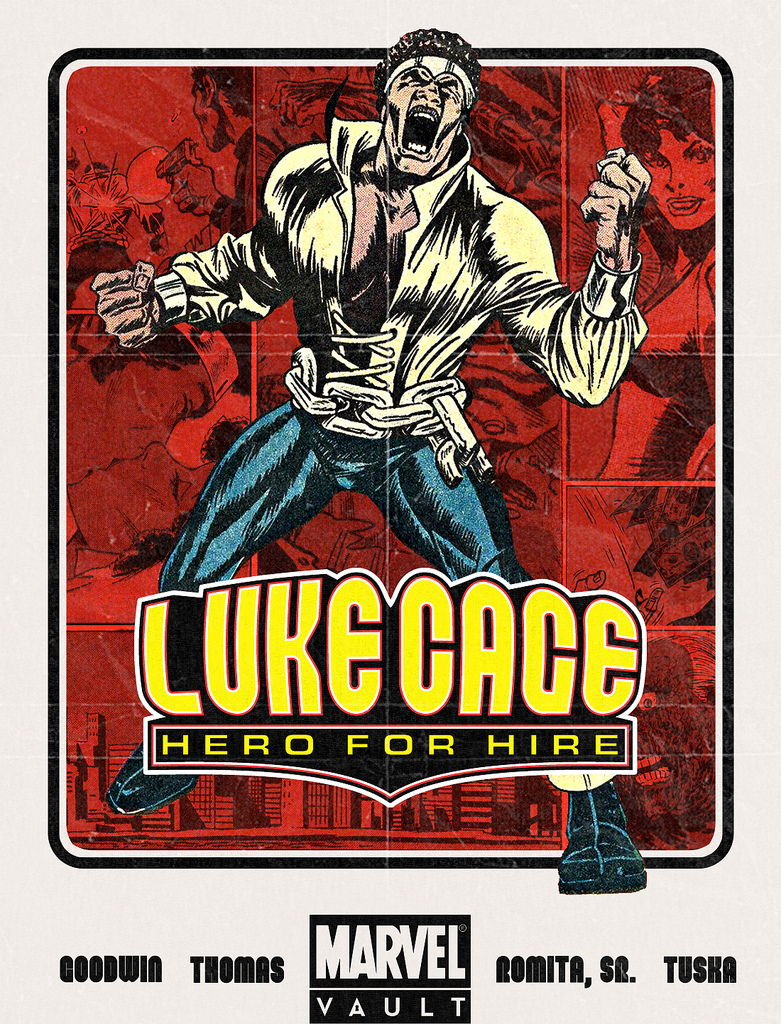
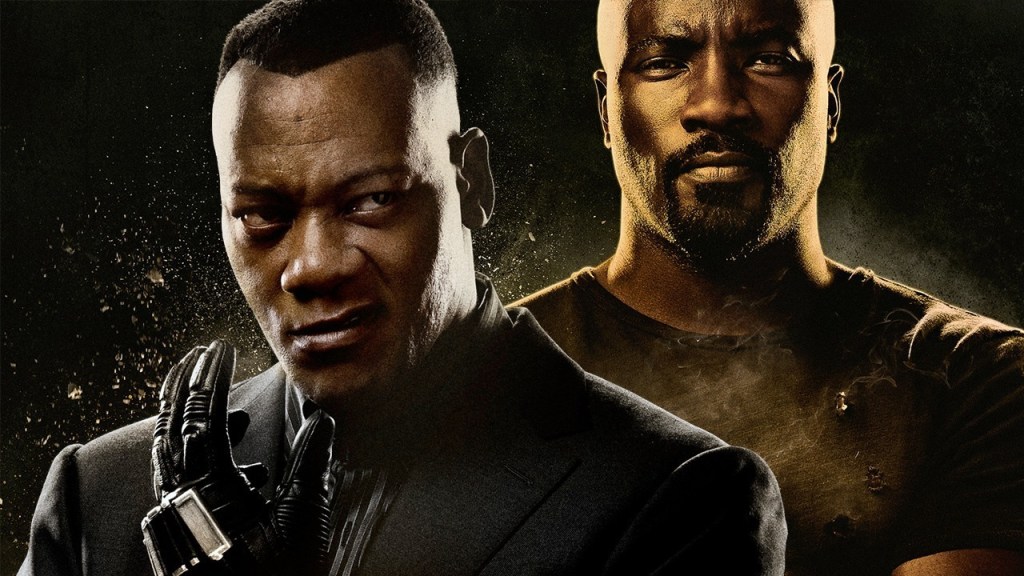
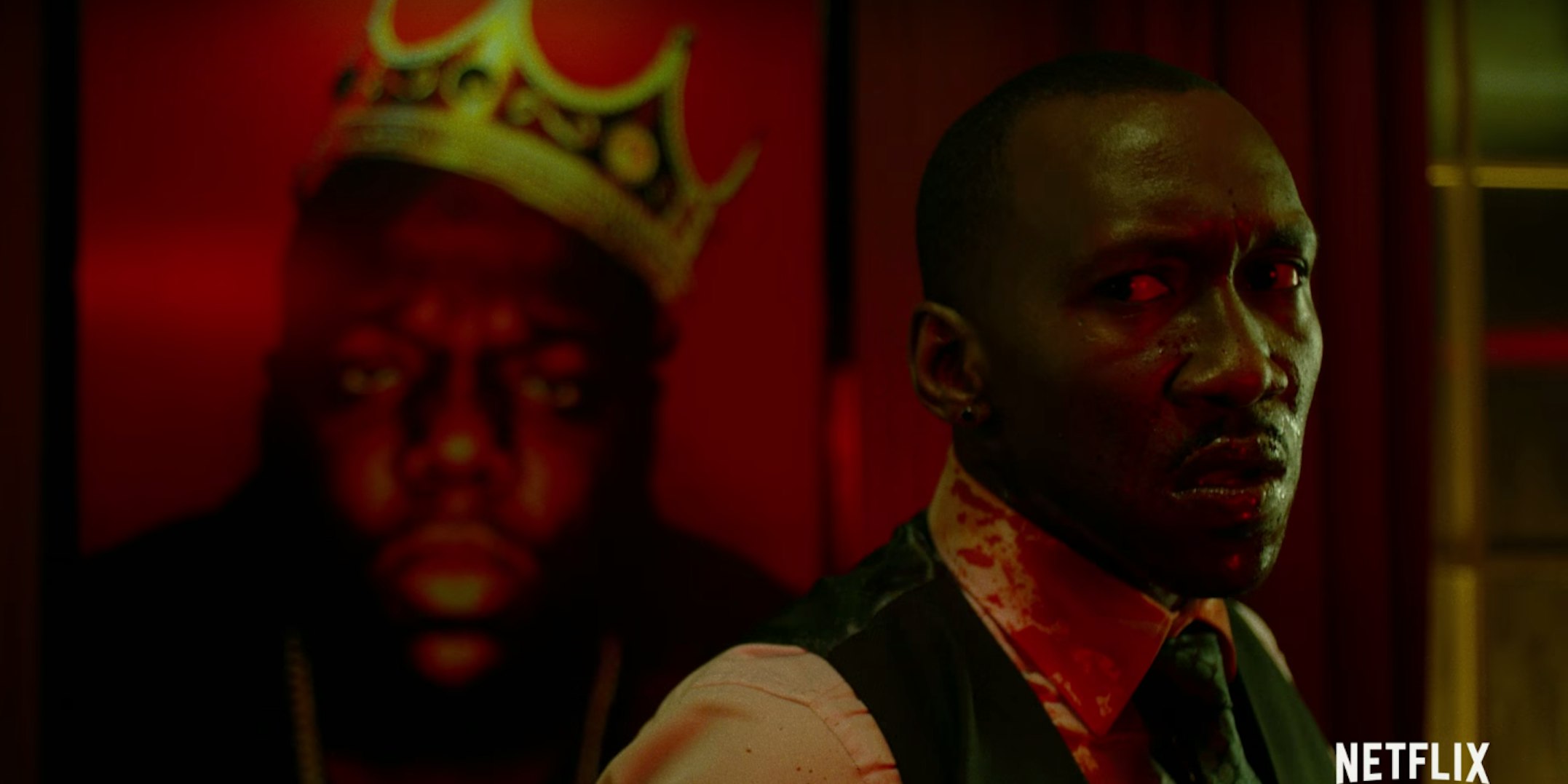
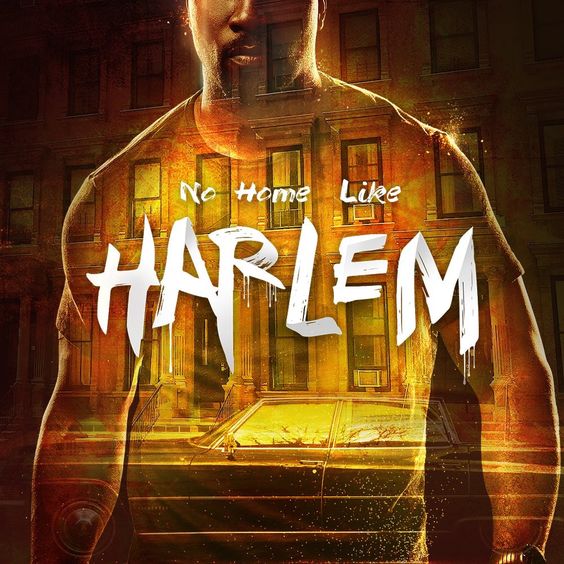




[…] data and anthropology, about finding innovation in reading about Margaret Mead, and writing about Luke Cage on Netflix. Being a practicing anthropologist, I am often the only one with my background in my workplace. It […]
LikeLike
Interesting read! I would love to see you analyze more TV shows and movies anthropologically 🙂
LikeLike